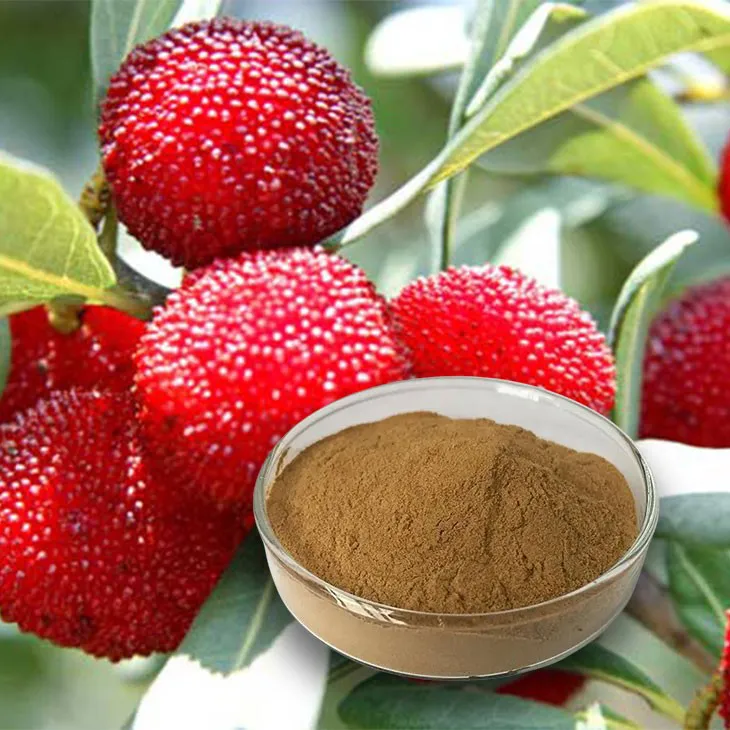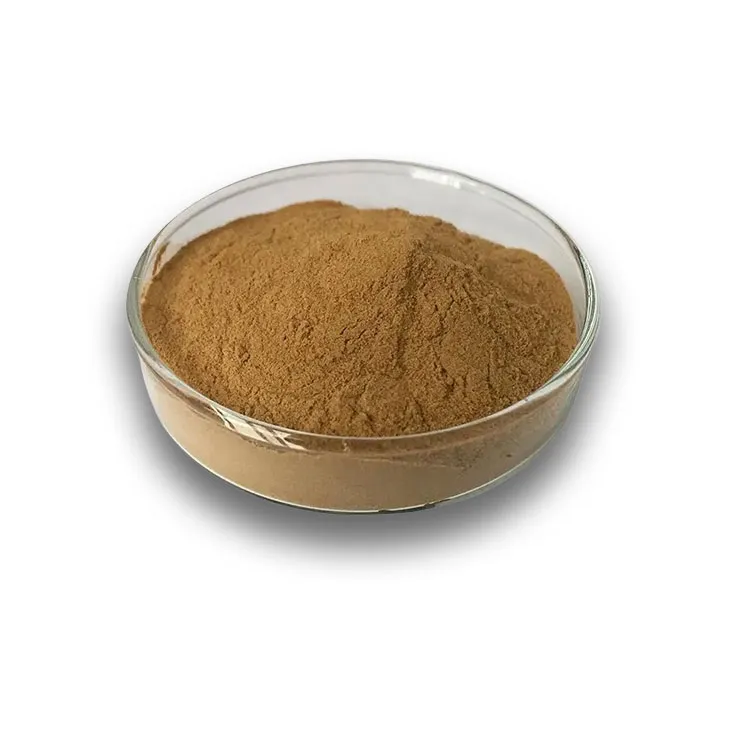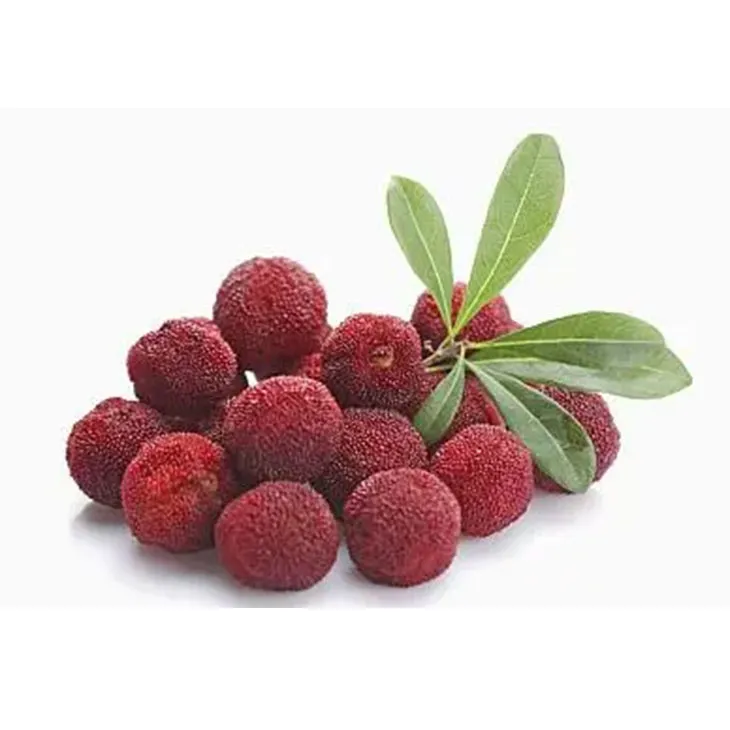- 0086-571-85302990
- sales@greenskybio.com
Bayberry Extract: China vs. the United States
2024-11-26

1. Introduction
Arbutus extract has been garnering increasing attention in both China and the United States due to its potential health benefits. However, the ways in which these two countries approach this extract are significantly influenced by their respective economic, scientific, and cultural backgrounds. This article delves into the differences in research, production, and potential markets for arbutus extract in China and the United States.

2. Arbutus Extract in China
2.1 Traditional Herbal Medicine Heritage
In China, arbutus extract is deeply rooted in the rich tapestry of traditional herbal medicine. For centuries, Chinese herbalists have recognized the value of arbutus and have used it to treat various ailments. The knowledge of arbutus and its extraction techniques has been passed down through generations, forming an important part of China's intangible cultural heritage.
2.2 Unique Extraction Techniques
Chinese traditional extraction methods for arbutus extract are often based on time - honored practices. These may include methods such as decoction and maceration. Decoction involves boiling the arbutus plant material in water for a certain period, while maceration requires soaking the plant material in a solvent (usually water or alcohol) for an extended time. These techniques are designed to extract the active components of arbutus while maintaining the integrity of its medicinal properties according to traditional Chinese medicine theory.
2.3 Research in China
- In recent years, Chinese researchers have also begun to combine traditional knowledge with modern scientific methods. They are using advanced analytical techniques such as high - performance liquid chromatography (HPLC) and mass spectrometry (MS) to study the chemical composition of arbutus extract.
- Studies are being carried out to explore the potential pharmacological effects of arbutus extract on diseases such as diabetes, inflammatory diseases, and cardiovascular diseases. For example, some preliminary research suggests that certain compounds in arbutus extract may have hypoglycemic effects, which could be beneficial for diabetes management.
2.4 Production in China
- The production of arbutus extract in China is often a small - scale, family - run or traditional workshop - based operation in some rural areas. These producers rely on locally sourced arbutus plants, which are carefully harvested following traditional guidelines to ensure sustainable use.
- However, with the increasing demand for herbal products in both domestic and international markets, some larger pharmaceutical and health - product companies in China are starting to invest in more standardized production processes for arbutus extract. This includes strict quality control measures to ensure the purity and safety of the extract.

3. Arbutus Extract in the United States
3.1 Modern Scientific Rigor
In the United States, the approach to arbutus extract is dominated by modern scientific principles. Researchers here are more likely to conduct in - depth scientific investigations using evidence - based methods. For example, large - scale clinical trials are often carried out to determine the efficacy and safety of arbutus extract in treating specific diseases.
3.2 Research in the United States
- American research institutions focus on isolating and identifying the specific active compounds in arbutus extract. Through techniques like genetic engineering and biotechnology, they aim to produce more potent and targeted extracts. For instance, if a particular compound in arbutus is found to have anti - cancer properties, researchers may try to enhance its production or modify its structure to improve its effectiveness.
- The United States also has a more comprehensive regulatory environment for research. Ethical considerations, such as informed consent in human trials and proper animal welfare in pre - clinical studies, are strictly adhered to. This ensures the reliability and credibility of research findings.
3.3 Production in the United States
- Production of arbutus extract in the United States is typically carried out by large - scale pharmaceutical or biotechnology companies. These companies have advanced manufacturing facilities equipped with state - of - the - art technology, such as supercritical fluid extraction and continuous - flow reactors.
- The production process is highly standardized, with strict quality control protocols in place. This includes testing for contaminants, ensuring accurate dosage formulation, and compliance with regulatory requirements such as those set by the Food and Drug Administration (FDA).

4. Differences in Potential Markets
4.1 Chinese Market
- In China, the market for arbutus extract is strongly influenced by traditional Chinese medicine culture. Consumers are more likely to accept arbutus extract in the form of traditional herbal remedies, such as herbal teas or capsules sold in traditional Chinese medicine pharmacies.
- The domestic market also has a large potential for growth, especially as the awareness of natural and traditional remedies increases among the general population. Moreover, China's large population provides a substantial consumer base for arbutus - based products.
4.2 US Market
- In the United States, the market for arbutus extract is more focused on its potential as a dietary supplement or a new drug candidate. Consumers are generally more receptive to products that are backed by scientific research and clinical trials.
- The US market also has a higher demand for standardized and purified extracts. This is due to the strict regulatory requirements and the preference of consumers for products with clear labels and known dosages.
5. Impact of Different Environments
5.1 Economic Impact
- In China, the relatively low - cost traditional production methods of arbutus extract can contribute to the economic development of rural areas. Small - scale producers can generate income by selling their extracts, either locally or in the domestic market. However, as the market becomes more competitive and internationalized, there is a need for investment in modernizing production facilities to meet international quality standards.
- In the United States, the high - tech production of arbutus extract by large companies drives economic growth in the pharmaceutical and biotechnology sectors. These companies invest heavily in research and development, which not only benefits the arbutus extract industry but also has a spill - over effect on related industries.
5.2 Scientific Impact
- China's traditional approach to arbutus extract provides a wealth of empirical knowledge that can be further explored using modern scientific methods. The combination of traditional and modern techniques can lead to new discoveries about the medicinal properties of arbutus.
- The United States' scientific - based approach can bring more in - depth understanding of the biological mechanisms of arbutus extract. This can lead to the development of more effective and targeted therapies, which can also inspire Chinese researchers to adopt more evidence - based research methods.
5.3 Cultural Impact
- In China, the cultural heritage associated with arbutus extract promotes the preservation and传承 of traditional Chinese medicine culture. It also influences consumer behavior, as people have a long - standing belief in the efficacy of traditional remedies.
- In the United States, the scientific - centered culture encourages consumers to demand more evidence - based products. This cultural difference affects the marketing and acceptance of arbutus extract in different ways in the two countries.
6. Conclusion
Arbutus extract is a valuable natural product that is being explored in different ways in China and the United States. While China draws on its traditional herbal medicine heritage with unique extraction techniques and a market influenced by traditional culture, the United States approaches it with modern scientific rigor, high - tech production, and a market driven by scientific evidence. The differences in research, production, and potential markets between the two countries are shaped by their economic, scientific, and cultural environments. By understanding these differences, there is potential for cross - fertilization of ideas and cooperation in the future development of arbutus extract, which could lead to more effective utilization and wider application of this promising natural extract.
FAQ:
1. What are the main differences in the research methods of arbutus extract between China and the United States?
In China, research on arbutus extract often starts from traditional medicine knowledge. It focuses on exploring its efficacy based on historical usage records and may use traditional extraction and analysis methods. In the United States, modern scientific research techniques are mainly adopted. For example, advanced spectroscopic analysis and cell - level and molecular - level biological assays are used to study the chemical composition and pharmacological effects of arbutus extract in a more in - depth and precise way.
2. How do the production processes of arbutus extract in China and the United States vary?
In China, traditional extraction methods passed down through generations may be still in use, such as water extraction or alcohol extraction, which are more natural and in line with the concept of traditional herbal medicine. In the United States, with the application of modern industrial technology, large - scale, automated production lines are often used. These production lines can precisely control factors such as temperature, pressure, and extraction time to ensure the consistency and quality stability of the product.
3. What are the potential market characteristics of arbutus extract in China and the United States?
In China, due to its long - standing use in traditional medicine, there is a relatively stable market demand among the public who believe in traditional medicine. It may be used in the form of traditional Chinese medicine preparations. In the United States, the market is more driven by modern health concepts. If arbutus extract can be proven to have certain health benefits through scientific research, it may be developed into new types of health products, such as dietary supplements, mainly targeting consumers interested in natural health products.
4. How does the cultural background influence the understanding and application of arbutus extract in China and the United States?
In China, arbutus extract is deeply influenced by traditional Chinese medicine culture. People have a long - established concept of using natural herbs for health care and treatment. Therefore, arbutus extract is regarded as part of the traditional herbal medicine system. In the United States, with a culture that emphasizes scientific evidence and innovation, arbutus extract is mainly studied and developed from a scientific perspective, and its application is more closely related to modern health and lifestyle concepts.
5. Are there any differences in regulatory policies for arbutus extract between China and the United States?
Yes, there are differences. In China, arbutus extract, as part of traditional herbal medicine, is regulated by relevant traditional Chinese medicine regulations. These regulations focus on aspects such as raw material quality control, production process standards, and traditional medicine formula management. In the United States, if arbutus extract is used in dietary supplements or drugs, it is mainly regulated by the Food and Drug Administration (FDA). The FDA has strict requirements for product safety, efficacy verification, and labeling.
Related literature
- Title: Arbutus Extract in Traditional Chinese Medicine: A Review of Ancient and Modern Applications"
- Title: "Modern Scientific Research on Arbutus Extract in the United States: Current Status and Future Prospects"
- Title: "Comparative Analysis of the Regulatory Frameworks for Herbal Extracts, with a Focus on Arbutus Extract in China and the United States"
- ▶ Hesperidin
- ▶ citrus bioflavonoids
- ▶ plant extract
- ▶ lycopene
- ▶ Diosmin
- ▶ Grape seed extract
- ▶ Sea buckthorn Juice Powder
- ▶ Beetroot powder
- ▶ Hops Extract
- ▶ Artichoke Extract
- ▶ Reishi mushroom extract
- ▶ Astaxanthin
- ▶ Green Tea Extract
- ▶ Curcumin Extract
- ▶ Horse Chestnut Extract
- ▶ Other Problems
- ▶ Boswellia Serrata Extract
- ▶ Resveratrol Extract
- ▶ Marigold Extract
- ▶ Grape Leaf Extract
- ▶ blog3
- ▶ blog4
-
Chinese Withania somnifera Extract Factory.
2024-11-26
-
中国松树皮提取物粉粉末供应商
2024-11-26
-
High - quality Marigold Extract Products.
2024-11-26
-
100% Pure Natural Mango - Flavored Powder.
2024-11-26
-
Cocoa Extract
2024-11-26
-
Diosmin
2024-11-26
-
Moringa powder
2024-11-26
-
Sugarcane Extract
2024-11-26
-
Acai Berry Extract
2024-11-26
-
Calendula Extract
2024-11-26
-
Alisma Extract
2024-11-26
-
Buckthorn bark extract
2024-11-26
-
Peppermint Oil
2024-11-26
-
Oat Straw Extract Powder
2024-11-26





















